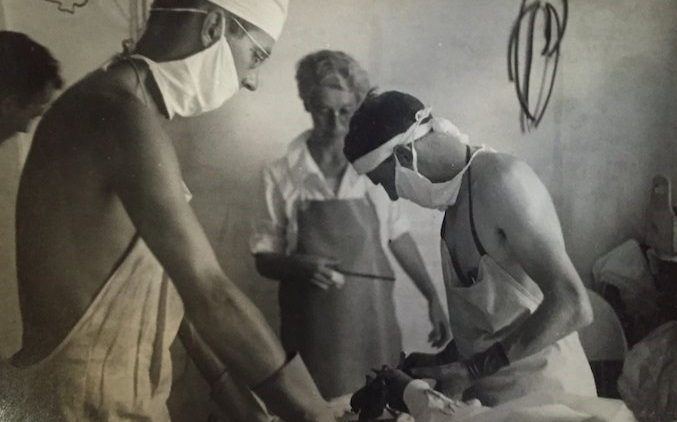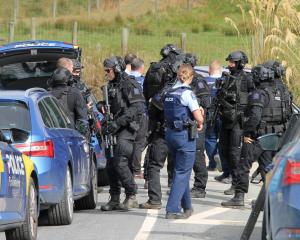
He revolutionised surgery and saved countless lives with his systems and willingness to challenge the status quo.
Born in 1904 in Cromwell and trained at Otago University’s medical school, Dr Jolly left for England in 1932 to become a surgeon, working his passage as a ship’s doctor. He never returned to live in New Zealand.
While he never completed that qualification, and could not operate in the hospital he later ran, Dr Jolly carried out thousands of life-saving operations in two wars and was believed to be the only surgeon to have operated on almost 1000 gunshot wounds to the stomach.

Mr Derby had written previously about the Spanish Civil War and Dr Jolly’s name cropped up peripherally, he said.
While some surgeons lived on in the names of devices they invented, Dr Jolly reorganised the whole structure, the hierarchy of treatment, and was not known.
Frontline Surgeon was written to redress that, he said.
In 1936 Dr Jolly left surgical training to go to the Spanish Civil War. He intended to return to finish his qualification.
Dr Jolly was made a captain in the Republican Army and led a 12-person mobile surgical unit facing fierce attacks around the city of Madrid. For the next two years he was present at many of the most crucial and devastating battles of the civil war. Operating impartially on troops and civilians, he developed a system of mobile emergency surgery that became standard both in war- and peace-time.
Getting as close as possible to the frontline was the key to Dr Jolly’s method. He divided care into three stages — stabilising the patient as close to the fighting as possible before moving them a little further away for initial treatment. Once they could be moved again, usually after no more than a week, the last move was to a base hospital some distance away for as long as it took for them to heal.
This was a far cry from traditional surgeons who would be positioned as far as possible from the battlefield and have patients brought to them.
His typically Kiwi ingenuity saw him use trains for hospitals with the dual advantage of using them to transport patients and use tunnels for shelter from overhead bombing.
Bombing from aircraft was new in the Spanish war and his experience in treating those injuries would be used in WW2 which followed shortly afterwards.

Dr Jolly returned to Britain and served during WW2 with the Royal Army Medical Corps, using his systems and discovering uses for the new wonder drug penicillin.
Mr Derby believes Dr Jolly’s left-wing views contributed to him being snubbed by the British surgical fraternity and one of the reasons he was never awarded an honorary degree as many were after WW2.
He ended his career as chief medical officer of Britain’s largest orthopaedic hospital. Initially the hospital treated casualties from the war. In later years they worked with children born with limb abnormalities due to the drug Thalidomide.
While Dr Jolly ran the hospital he was never able to operate in it.
Mr Derby’s book was first published in the United States in hardback.
While that made it a beautiful book, it also made it extremely expensive to sell in New Zealand, he said.
He approached Massey University Press, with whom he had previously worked, and they agreed to publish it for Australasia.
The book was first published in the United States in hardback.
• Frontline Surgeon: New Zealand medical pioneer Douglas Jolly will be launched in Cromwell on July 10 at 5.30pm, at the Cromwell and Districts Presbyterian Church, in conjunction with the Central Otago Heritage Trust.
Books will be available for purchase and signing. Free entry and all are welcome.












